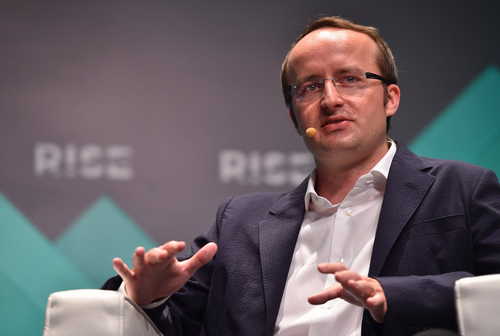Using PAX Gold, a stablecoin backed by gold, FTX will allow traders to buy and sell gold futures contracts via digital assets.
For the first time, investors can trade gold-backed futures contracts on a leading crypto derivatives exchange. In addition to its spot market trading, PAX Gold is now available as perpetual and quarterly futures contracts on FTX.
A futures contract is an agreement to buy or sell a specified asset at a predetermined price at a specific time in the future.
The price of PAX Gold is tied to the spot price of one troy ounce of London Good Delivery gold, a standard measure for the London gold market. With PAX Gold, a trader or investor owns the underlying physical gold stored in London vaults, which is unlike gold futures, exchange-traded funds or unallocated gold.
By offering more sophisticated trading vehicles for digital assets, FTX hopes to pave the way for eventual options and leverage trading for PAX Gold.
«Crypto trading is still a young market,» said Paul Ciarvardini, Head of Trading at Paxos in an email to CoinDesk. «PAX Gold futures on FTX shows how the market is maturing and that it is ready for more complex financial instruments.»

FTX is operated by Alameda Research, a cryptocurrency liquidity provider that ensures the exchange has access to deep liquidity pools essential for the health and growth of the crypto derivatives market.
Paxful Becomes First P2P Exchange to Partner With Chainalysis
Peer-to-peer exchange Paxful has deployed Chainalysis’ cryptocurrency investigations and transaction intelligence software tools, the companies announced Monday in a joint press release.The deal represents an about-face for Chainalysis, one of the industry’s most prominent crypto surveillance developers and regular partner of exchanges, governments and private companies. It had never signed on a peer-to-peer client because these firms were seen as too risky to conduct business with, said John Dempsey, Chainalysis’ VP of Product.
“I think previously we categorically viewed P2P exchanges as a high-risk category”, he told CoinDesk.
In a P2P model parties move cryptocurrency directly between their wallets with no financial institution processing the trade. That represents a purer form of crypto dealmaking: bitcoin was envisioned as a decentralized P2P network, after all.
But P2P exchanges often play it fast and loose on the regulatory compliance front, said Chainalysis’ Marketing Director Maddie Kennedy. Some flout know-your-customer laws by allowing their users to work without an account, let alone identification required by law.
That tainted the category’s reputation and made Chainalysis hesitant to partner with any P2P exchange. “This is a reputational risk for us”, said Dempsey the Chainalysis exec.
Dempsey said Paxful came to Chainalysis looking for investigative tools. They agreed to a partnership after seeing Paxful had “transformed its business model to prioritize compliance”, according to Kennedy.
Paxful Chief Compliance Officer Lana Schwartzman told CoinDesk that the exchange began pivoting in “early 2019” after it realized that its future depended on toeing the regulatory line. She joined the company in late 2018.
Earlier that year, Paxful co-founder Ray Youssef had told CoinDesk that his exchange was “redoing our entire KYC process.”
The biggest playmakers in crypto are centralized exchanges. Binance, a Chainalysis partner, moved over $800 million in bitcoin in the past 24 hours, according to Bitwise. Paxful’s not processed $30 million in the past week.


